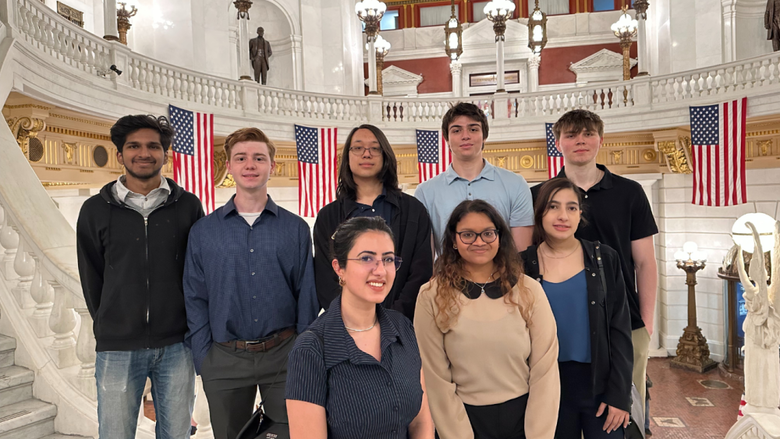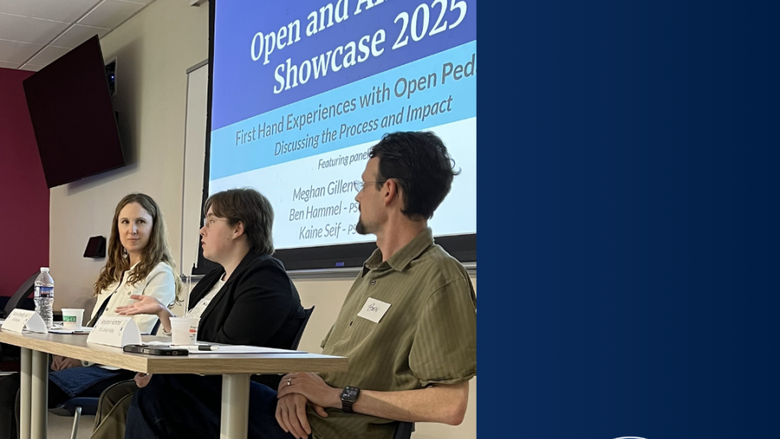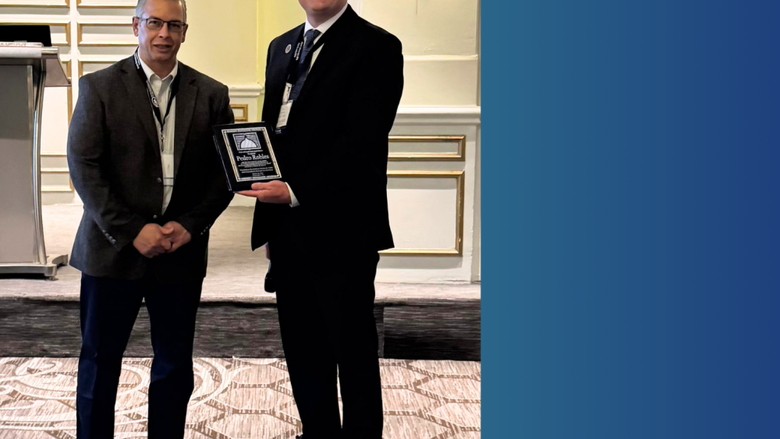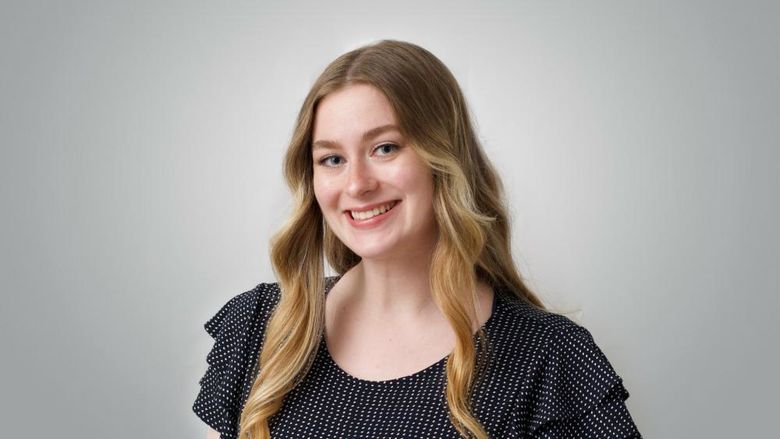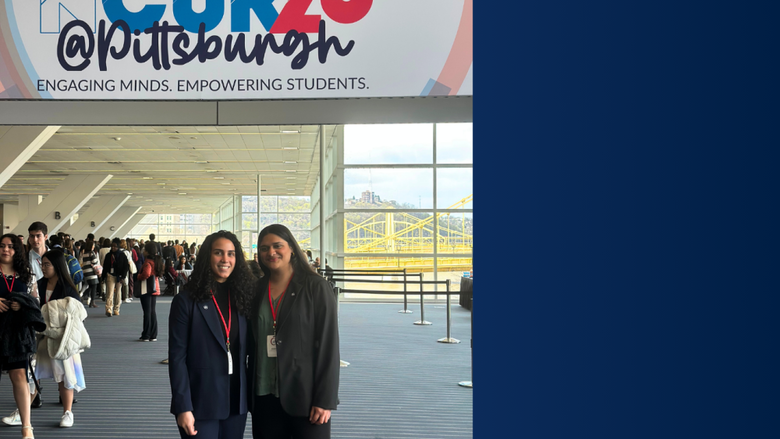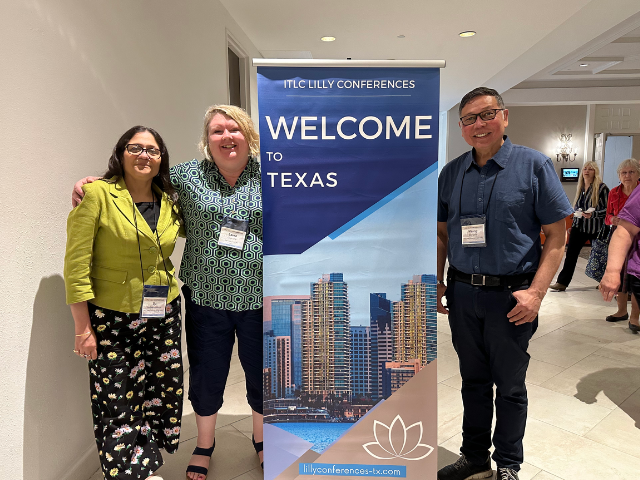
Subhadra Ganguli, assistant teaching professor of business; Laura Cruz, research professor at the Schreyer Institute of Teaching Excellence; and Maung Min, associate teaching professor and director of business programs, Penn State Lehigh Valley, presented at the 2024 Lilly-Austin Conference for Teaching and Learning in Austin, Texas.
CENTER VALLEY, Pa. — Penn State was well-represented at the recent Lilly-Austin conference, one of the most highly-regarded academic events focused on evidence-based teaching and learning. Faculty from three Penn State Commonwealth Campuses — Lehigh Valley, Fayette and Shenango — gave presentations.
Penn State Lehigh Valley faculty members Maung Min, associate teaching professor and director of business programs, and Subhadra Ganguli, assistant teaching professor of business, worked with Laura Cruz, research professor at the Schreyer Institute for Teaching Excellence at University Park, on “The How and the What: Integrating Sustainable Decision-Making Across the Business Curriculum.” Their presentation focused on students’ approaches to sustainability when making decisions. Min and Cruz had been working on the correlation between sustainable decision making and sustainability for over a year. Ganguli approached the topic from an economic standpoint.
“What didn’t happen was trying to link sustainability and decision making within businesses across disciplines,” Ganguli said. “What this project did, and what Maung and I wanted to do in three of our courses, was to see how our students are going to think about sustainability in the first place. We didn’t want to influence what they thought about it.”
Min and Ganguli distributed a survey to students in their MGMT 301, ECON 102 and ECON 104 courses, respectively, at the beginning to gather the information, and a second follow-up survey at the end of each of the three courses with the same questions to determine whether students’ outlooks on the topic changed.
“The follow up basically asked, ‘What’s your opinion now?’ That was our whole point of doing it,” Ganguli said. “Is there a change in how they’re thinking and acting about sustainability after doing this course? We all know what we should do — recycle, don’t litter — but if you’re given a situation, do you have the willingness or ability to bring about change, rather than just tell someone what they should do?”
Ganguli said she was a bit surprised by the results.
“There are some areas where there are significant changes, but less in how they act on it," Ganguli said. "What they thought about it changed drastically; how they are going to act on it was still unclear. That’s what we now need to work on — how we can become sustainable in the decision-making process.”
This was Min’s first time attending the Lilly-Austin conference, though he had previously attended this event in other cities.
“It’s one of the preeminent conferences that deals with teaching and learning," he said. "We meet a lot of very well-known people doing research in the areas of teaching and learning, which is a key reason why attending is so beneficial. We also pick up some nuggets that we can use in our own teaching.”
Ganguli admitted their topic of sustainability and decision-making is a challenge in that not much work has been done on how to engage students.
“It’s clear students are not thinking holistically about sustainability," she said. "It’s a three-legged stool consisting of environment, profits and people — it’s almost impossible to get undergraduate students to think about it when there is so much uncertainty. This collaboration helped us to think that we have to approach sustainable decision-making for our students differently."
As sustainability was not a major focus of the conference, Ganguli said attending the conference was valuable for addressing various pedagogical challenges.
“There were many sessions which were really helpful — in fact, among the top two or three things I learned was around community engagement and asking our students to make a difference in their communities," she said. "I met with scholars who are big influencers in the community engagement space. There were also some great sessions focused on particular ways of thinking in a classroom that are not necessarily teaching or discussing, but rather ‘design thinking.’ We picked up lots of new ideas to use in the classroom.”
